I found my first grey hair aged 18 at university, which quickly turned into a Mallen Streak that my brother and I giggled about.
After a dodgy haircut which cost me £3 and my mates named the Toxteth Barnet, I left my hair to grow and wore it super long, brunette and curly, for years. I was a student too for years, so only got my hair cut when I was flush with cash (err never) or just fancied getting pampered.
By my late twenties though, hairdressers would point out the mass of grey and say that I should get a colour over it, to tidy things up, as if it was somehow failing me or I was failing my hair. It never occurred to me to ask why I felt the need to pretend my hair was not going grey. Nor, did it occur to me to challenge the hairdressers who suggested that I should keep on top of my grey hair: You have such a young face, it seems a shame to age it with grey hair. So, I dyed my grey roots whenever they showed. It didn’t seem like a big deal, just a thing I did.
Five years ago, I was hospitalised after my first round of chemotherapy, and as I lay in the cancer ward with absolutely no immune system, I wailed as my beautiful long black hair fell out in big clumps – big fistfuls all over the bed – as if that was the only problem in my life. The nurse who had to do my blood pressure every half hour spent a lot of his time holding my hand assuring me that I would still be beautiful with no hair, he needed my blood pressure to come down, so I needed to come to terms with the loss of what I had always considered was my crowning glory. As soon as it grew back the first thing I did was dye it, to be normal, and to hide my grey hair. And, let me tell you the WHOLE THING was grey! Not just a strand or two.
Then the real fun began, I had to cover my roots every two weeks, and even then, it didn’t occur to me to ask myself why.
It was Nora Ephron who said that hair dye is the most powerful weapon older women have against the youth culture. But, why do we need a weapon? What is our obsession with youth? Why do us intelligent, wonderful women have to do anything else but be ourselves at whatever age we are? It is so entrenched in our society and reflected in those backhanded compliments we give and get because we really all don’t know any better. A student: You look really young until you get up close. A mum on the playground: You are holding up well.
The subtext seems to be that I have to preserve myself, for if I let myself go with a grey hair here or wrinkle there, then life is over. This is confirmed by therapist Iris Fodor who says that women worry about becoming disposable objects. If we are not childbearing, or looking sexy – because traditionally they have been our roles in society – then we won’t be loved or have any adventures as we age. Fodor goes on to say that therapists need to help clients to identify less with our culture’s view of attractiveness, and embrace the wisdom we have knowing full well that only youth counts.
In her TED talk on vulnerability (filmed in 2010) social scientist, Brene Brown quotes a fellow researcher who asked: What do women need to do to conform to female norms? The top answers in the USA were be nice, thin, modest and use all available resources for appearance.
We really need to rethink our culture’s values and view of attractiveness.
So, this year in May, I looked in the mirror and noted that it was that time again and a new thought: Who am I kidding? – popped into my head instead. The regime of covering my grey hair was over, just like that. My dyed hair was no longer looking good to me, and when I let a hairdresser dye my roots, I was in there for THREE hours. In June, I went to the hairdressers, had my hair cut short and blonde highlights throughout my hair (I wanted grey but then that’s another story).
Transitioning into grey it is not straightforward. I have to use a purple shampoo once a week on my hair to stop the brassiness, and style it when I wash it, because it is short and fraggly and not in great condition due to the bleach, and I am currently going to the hairdressers every six weeks to get a gloss on it. However, the freedom from no roots is wonderful.
So, it has been six months, I hate the blonde hair and want to lop it off but can’t face growing my hair again. But, I love the grey, it really suits me, and vain as I am, I have been thrilled to hear compliments about my hair. However, the shift inside has been even better. Instead of wondering about my appearance and what people think, I spend my time wondering about me. Why do I feel such a way? What on earth made me say that?
I no longer get a shock looking in the mirror like I did before – I seem to have adapted to my new hair. Just the other day, I was flicking back through some photos and came across a picture of me with short dark hair from earlier this year before the blonde, and it looked odd – dyed, a bit fake, no longer me.
So I am definitely committed to my grey, another plus is that it’s a steely grey, so I don’t have to change my wardrobe (mainly red and black). I put some pictures of my grey growth at the top and every so often I add some more. Who knew I could find my own grey hair completely fascinating?
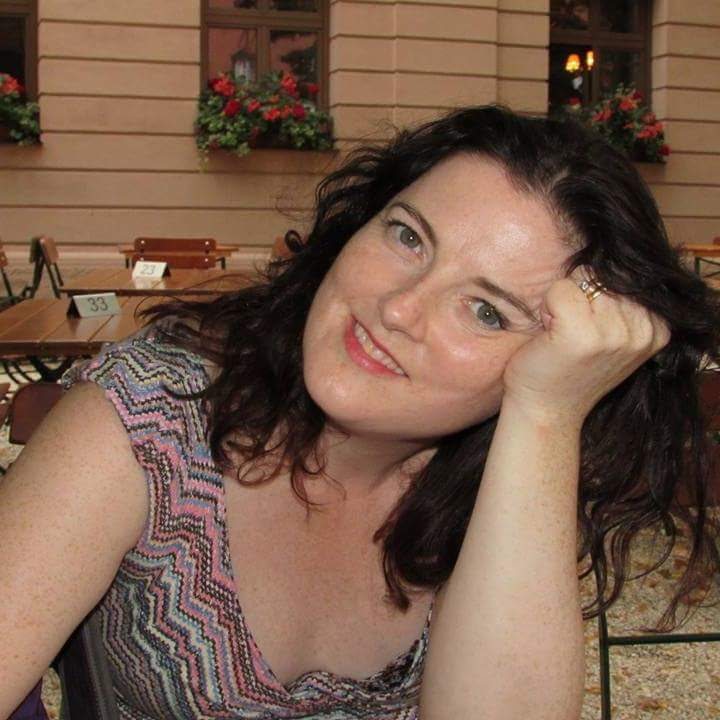

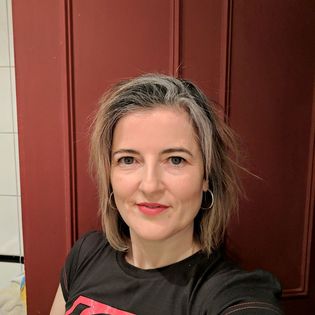

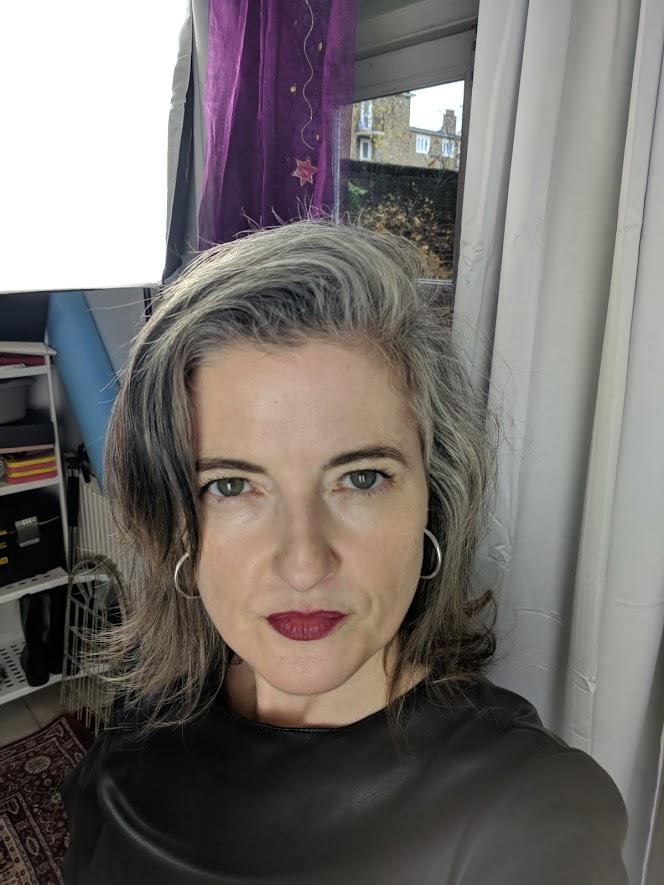
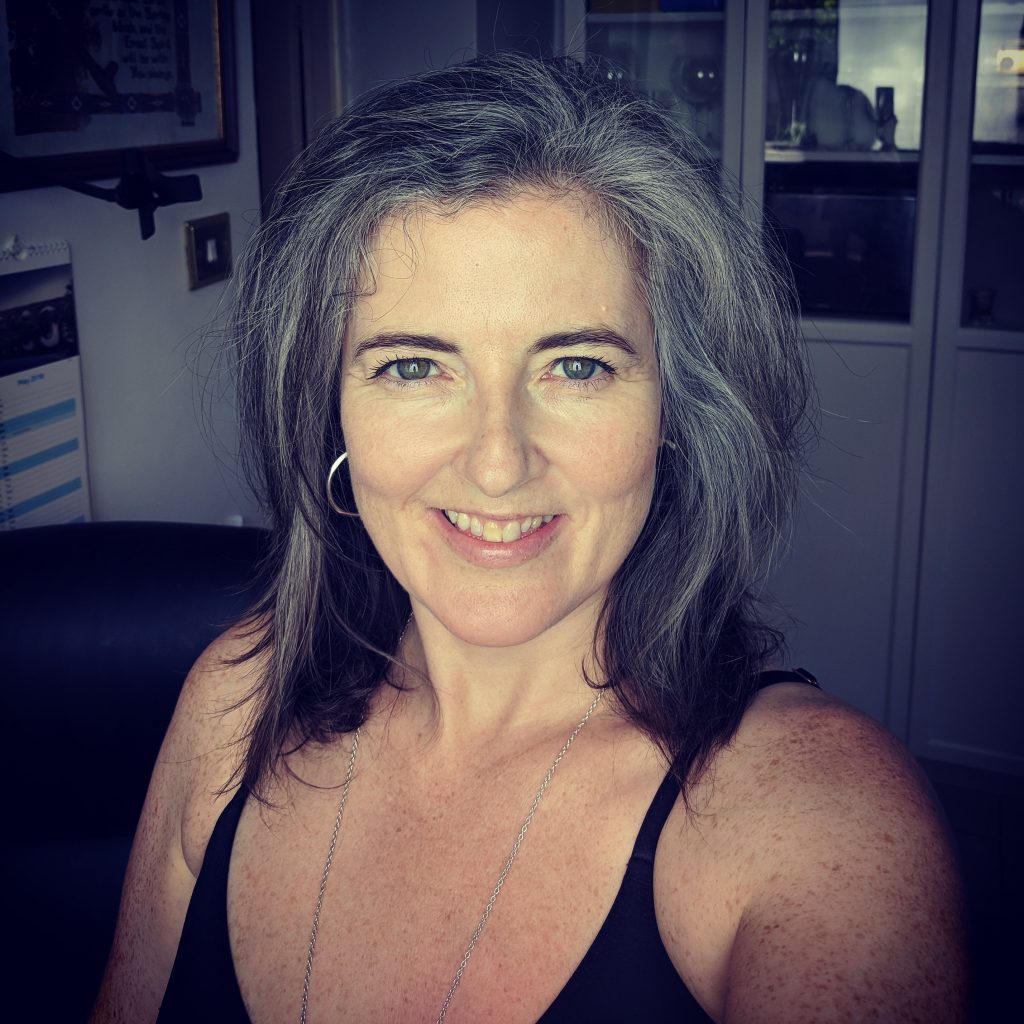
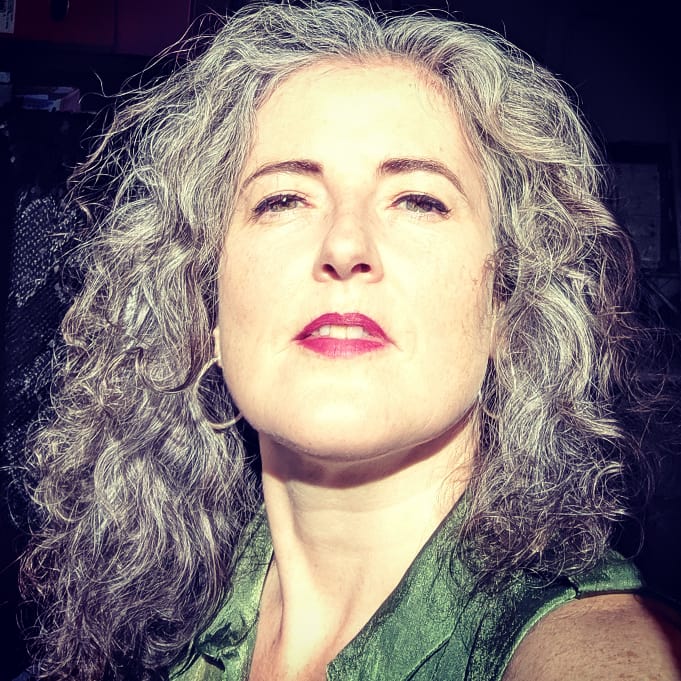
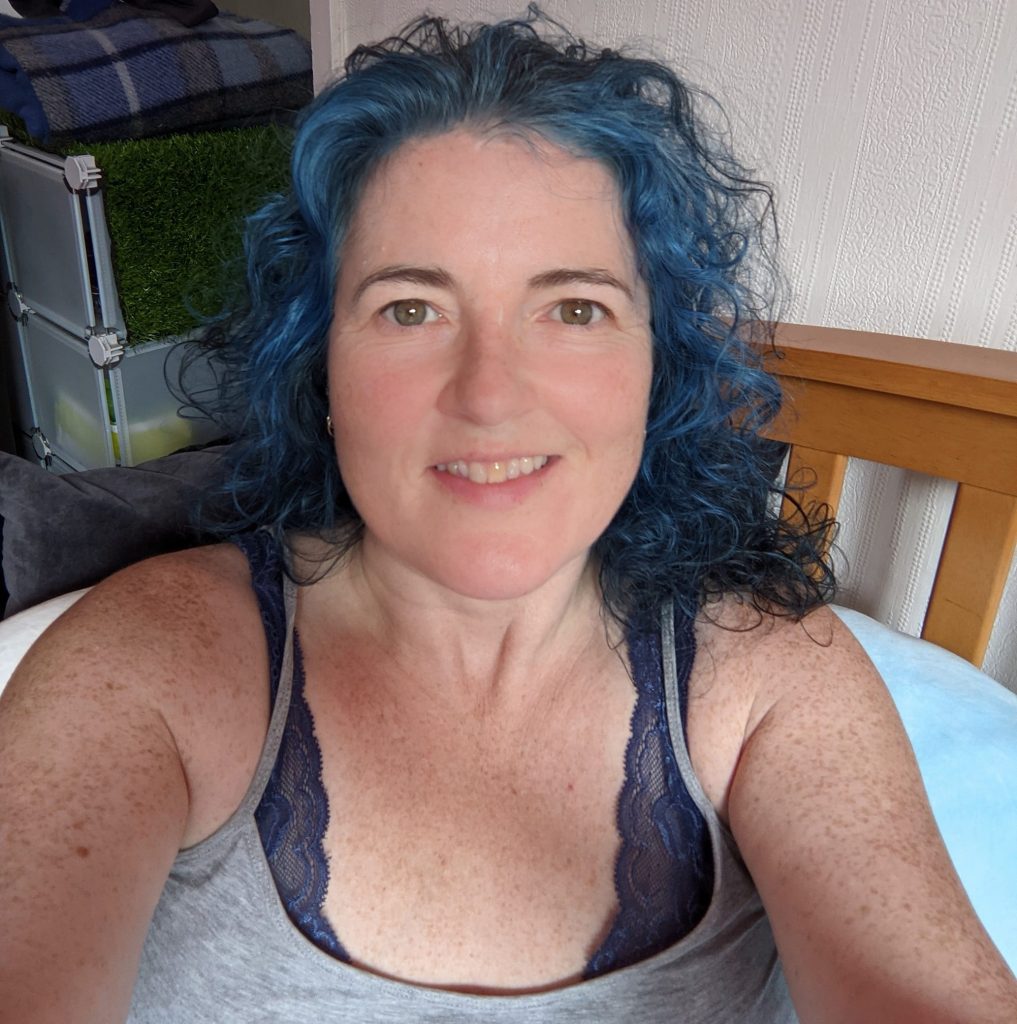



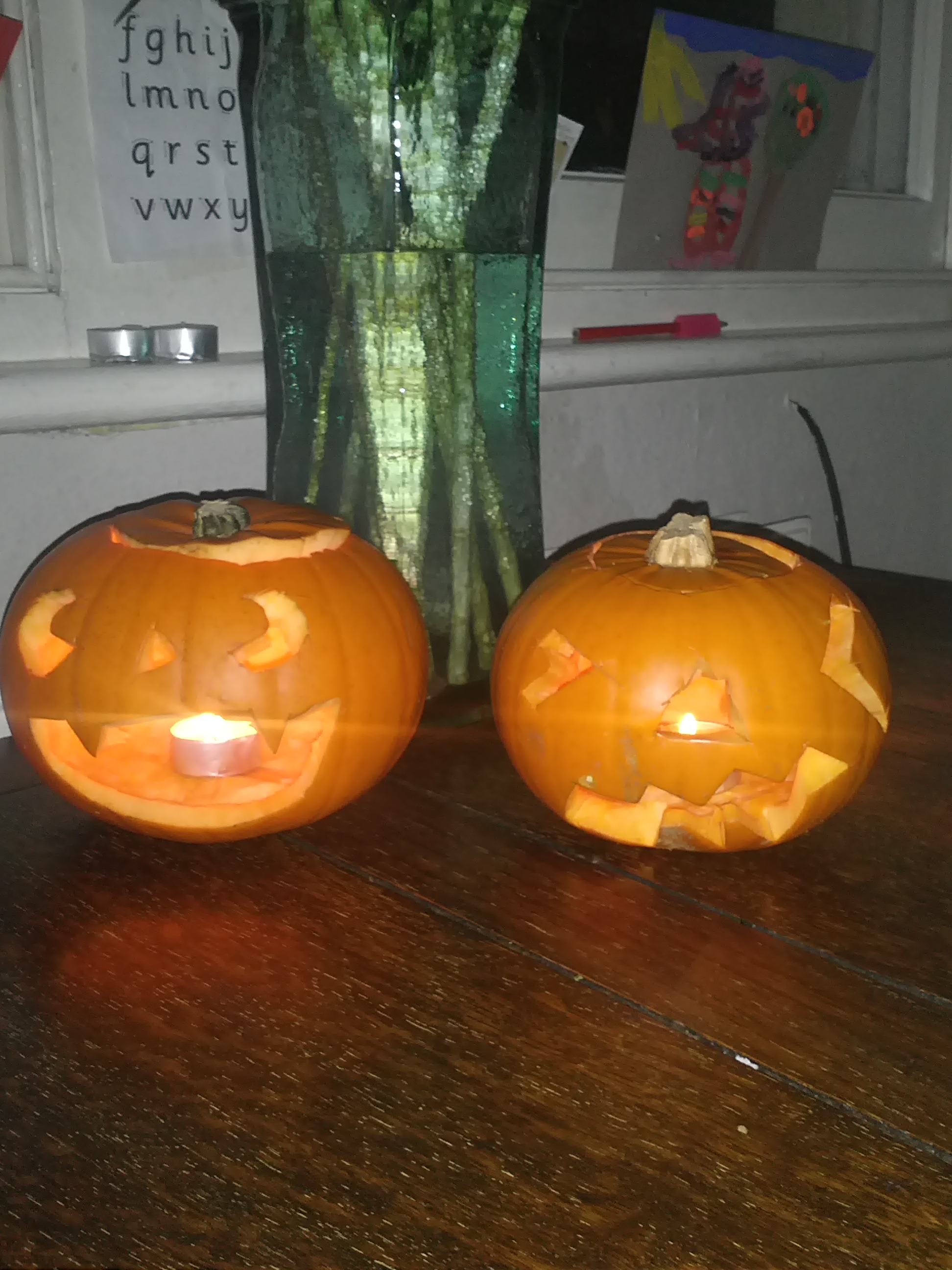



12 comments